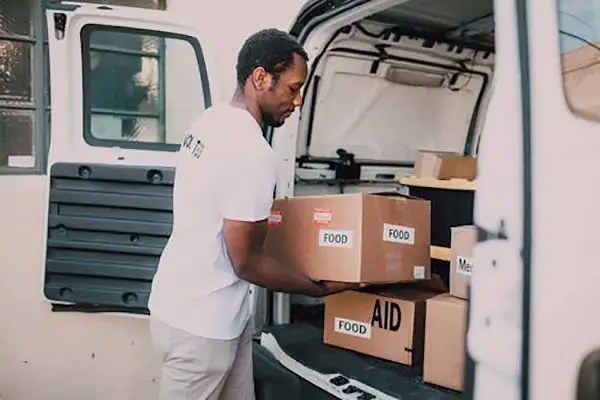Last Sunday’s Easter celebrations offered the usual chorus of hymns and lilies, yet the season’s deeper challenge—an honest reckoning with how we treat one another—has rarely felt more urgent. Across the globe, the instinct to volunteer has been fraying, squeezed by harsher economies, relentless disasters, and policy decisions that shrink the lifelines many communities rely on.
One punching blow came from Washington: the Trump administration’s dramatic downsizing of the United States Agency for International Development (USAID). However imperfect, USAID has long delivered vaccines, grain, and technical know-how where they mattered most. Slashing its budget did not merely trim “foreign aid”; it cut directly at clinics in rural Africa, irrigation projects in Central America, and grassroots women’s-health programs in Southeast Asia. The human cost is already measurable in longer medicine lines and shuttered community centers.
Add to this the new wave of tariffs ricocheting through world markets. Every import fee pushes prices up and paychecks down, leaving fewer dollars, pesos, or shillings for the local food bank or after-school program. History shows that when families tighten belts, charitable giving is one of the first expenses to go. Non-profits then trim staff, cancel outreach visits, and—inevitably—serve fewer people. The feedback loop is vicious: economic anxiety breeds charitable drought, which in turn deepens the very poverty that sparked the anxiety.
Yet the instinct to help has not disappeared; it is simply waiting for oxygen. Easter’s enduring power lies in its call to sacrificial love—quiet, authentic, free of the selfie culture that sometimes hijacks philanthropy. Genuine service asks nothing in return and offers no stage lights.
That ethic was embodied, perhaps more visibly than anywhere else, in the life of Jorge Mario Bergoglio—Pope Francis—who died last week at 88. The first Jesuit and first Latin-American pontiff spent twelve restless years pushing the Roman Catholic Church to unlock windows long painted shut. He appointed cardinals from the peripheries, spoke of LGBT persons with respect rather than rebuke, and railed against what he called an “accounting-book Christianity” that forgets the poor in pursuit of balance sheets.
His frankness unsettled traditionalists, but it electrified slums from Buenos Aires to Manila, where a papal word could translate into a mobile clinic or a cooperative bakery. Francis understood that credibility flows from proximity: washing migrants’ feet or riding in a four-door Fiat sent louder messages than any encyclical. His death closes a chapter, but the example remains—a reminder that institutions, like individuals, choose daily between comfort and courage.
So where does that leave the rest of us, post-Easter, post-Francis, facing a thinning safety net? It leaves us exactly where meaningful change always starts: asking what is within reach. If tariffs gnaw at household budgets, creativity can fill some gaps—skill-sharing platforms, neighborhood meal rotations, micro-donations delivered by phone. If government aid retreats, city councils and faith networks can lobby, innovate, and, when necessary, embarrass leaders back to the table.
Volunteerism is not a décor item for good economic times; it is society’s circulatory system. Let it atrophy, and cynicism seeps into everything. Nurture it, and even modest acts—an after-school lesson, a weekend clinic, a bag of groceries—become quiet uprisings against indifference.
Easter’s story ends in resurrection, not retreat. Pope Francis spent his final years urging believers to “step outside and get their shoes muddy.” In an era of shrinking budgets and rising walls, that charge has never sounded clearer. Whether through policy advocacy or a single hour at a soup kitchen, the season asks us to reopen the windows he pried loose—and keep them wide for the next generation.






